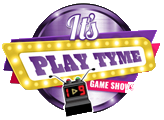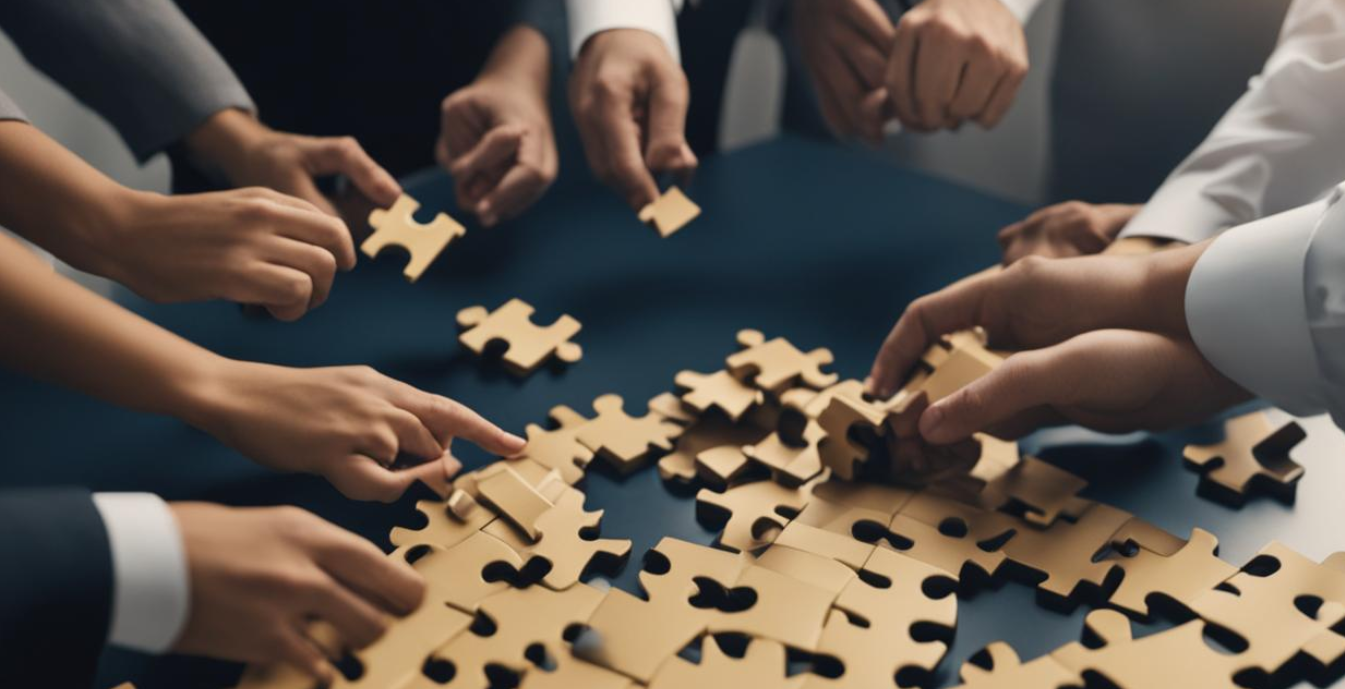As a Team Building Facilitator, I understand the importance of effective team building strategies in driving the success of businesses.
By fostering collaboration, communication, and a culture of shared goals, effective team building can enhance team development and enable businesses to achieve outstanding results.
In this section, we will explore actionable team building strategies that can help your team members reach their full potential and maximize their contribution to your organization.

Key Takeaways:
- Effective team building involves promoting collaboration and communication among team members.
- Creating a culture of shared goals and mutual respect can enhance team development.
- Effective team building can help businesses achieve outstanding results and drive long-term success.
- Team building strategies should be tailored to the unique needs of your organization and team members.
- Regular evaluation and adjustment of team building strategies can enhance their effectiveness over time.
Benefits of Team Building Activities
As a business owner, I know firsthand the importance of having a strong, cohesive team. But building such a team takes more than just hiring talented individuals.
It requires investing time and resources into team building activities. Not only are these activities a fun way to break up the workday, but they also have numerous benefits for team bonding and overall productivity.
Improved Communication
Team building activities provide an opportunity for team members to interact with each other in a non-work setting.
Through these activities, team members can get to know each other better, which can lead to improved communication and collaboration in the workplace.
For example, a group problem-solving activity can help team members learn each other’s communication styles and how to work together more effectively.
Increased Trust
Trust is a crucial component of any successful team. Team building activities help establish trust among team members by creating a safe space where individuals can be vulnerable and take risks without fear of judgment.
This trust can then carry over into the workplace, where team members can feel more comfortable sharing ideas and giving feedback.
Camaraderie and Strengthened Relationships
Team building activities can also foster a sense of camaraderie and strengthen relationships among team members.
Participating in fun, collaborative activities can create shared experiences that build upon the team’s social connections.
This can lead to a more positive and supportive work environment where team members feel more connected to each other.
Whether it’s a group outing or an in-office activity, investing in team building activities is essential for any business looking to promote team bonding and improve overall productivity. So why not give it a try?
Enhancing Team Collaboration
Effective collaboration is crucial to achieving success in any team-based environment.
By working together towards common goals, teams can achieve outstanding results and foster a sense of camaraderie and purpose.
However, collaboration is not always easy to achieve, and it requires the implementation of effective teamwork strategies.
As a team leader, I have found the following strategies to be particularly effective in enhancing team collaboration:
- Establishing clear communication channels: By setting up open and transparent channels of communication, team members can easily share ideas and feedback.
This helps to prevent misunderstandings and miscommunications and promotes a more collaborative work environment. - Promoting a culture of shared goals: When team members share common goals and objectives, they are more likely to work closely together to achieve them.
By fostering a sense of shared purpose, team leaders can encourage collaboration and innovation among team members. - Celebrating individual strengths: Each team member brings their own unique skills and strengths to the table.
By recognizing and celebrating these individual strengths, team leaders can create a more positive and inclusive team culture that encourages collaboration and mutual respect.
Implementing these teamwork strategies can help to enhance team collaboration and create a more positive and productive work environment.
As a result, teams can achieve outstanding results and foster a sense of shared purpose and mutual respect.
The Benefits of Team Collaboration
By enhancing team collaboration, teams can enjoy a wide range of benefits that can drive success and growth for businesses. Some of the key benefits of team collaboration include:
- Improved productivity: By working collaboratively, teams can complete tasks more efficiently and effectively.
- Enhanced creativity: Collaborative work environments promote the sharing of ideas and feedback, leading to more innovative and creative work.
- Increased employee satisfaction: When team members feel valued and respected, they are more likely to be satisfied with their work and their overall work environment.
- Greater accountability: When team members work collaboratively, they are more likely to hold each other accountable for their actions and results, promoting a culture of responsibility and ownership.
Overall, team collaboration is essential for achieving success in any team-based environment.
By implementing effective teamwork strategies and celebrating individual strengths, teams can work together towards common goals and achieve outstanding results.

Building a Successful Team
Building a successful team is crucial for any business to thrive. At the core of building a successful team is team development.
I believe that understanding individual strengths and weaknesses is the first step in creating a cohesive and high-performing team.
As a team facilitator, it’s my role to identify individual strengths and weaknesses and use them to my advantage. This way, I can create a team that complements each other’s strengths and weaknesses effectively.
Along with understanding individual strengths and weaknesses, we must also foster a sense of belonging and purpose.
A team that has a clear sense of purpose is more likely to work cohesively towards achieving their goals.
As a leader, it’s my role to communicate the vision and goals of the company to the team, and ensure that everyone understands their role in achieving them.
It’s crucial to ensure that every team member is aware of how their work contributes to the bigger picture.
Another crucial aspect of building a successful team is effective communication.
It’s essential to have regular communication channels in place to ensure that everyone is on the same page, and to address any concerns that arise in a timely manner.
Lastly, it’s important to recognize and celebrate successes, no matter how small they may be.
Celebrating successes as a team helps to foster a sense of camaraderie and motivates everyone to continue working towards achieving the team’s goals.
| Key Elements | Importance |
|---|---|
| Understanding individual strengths and weaknesses | Enables creation of a team that complements each other’s strengths and weaknesses effectively. |
| Fostering a sense of belonging and purpose | Creates a team that works cohesively towards achieving their goals. |
| Effective communication | Ensures that everyone is on the same page and concerns are addressed in a timely manner. |
| Celebrating successes | Fosters a sense of camaraderie and motivates everyone to continue working towards achieving the team’s goals. |

Team Building Exercises for Skill Development
Team building exercises are a great way to develop essential skills within your team, such as problem-solving, trust-building, and communication.
These exercises can also improve team dynamics and enhance team development.
One effective team building exercise is the “Minefield” game. This game involves blindfolding team members and having them navigate through a room filled with obstacles without touching them.
This activity encourages communication and trust among team members, as well as problem-solving skills.
Another fun exercise is the “Great Egg Drop,” where teams are challenged to design and build a device that can protect a raw egg from being dropped from a high place.
This exercise promotes creativity, collaboration, and critical thinking.
For a more physical challenge, consider the “Human Knot” game. In this exercise, team members stand in a circle and grab hands with two different people.
They then work together to untangle themselves without breaking the chain of hands. This game requires teamwork, communication, and problem-solving skills.
In addition, outdoor activities such as camping, hiking, and canoeing can also be great team building exercises.
These activities require teamwork, trust, and communication as team members work together to navigate through nature.
Nurturing Team Dynamics for Long-Term Success
As I mentioned earlier, team dynamics are a crucial aspect of building a successful team.
It’s not just about getting people to work together; it’s about creating an environment where team members feel valued, respected, and supported.
One of the most important factors in nurturing team dynamics is trust. When team members trust each other, they are more likely to collaborate effectively, take risks, and communicate openly.
Building trust takes time, but there are several strategies that can help accelerate the process:
- Encourage team members to share their ideas and opinions
- Hold regular team-building activities to foster collaboration
- Provide opportunities for team members to get to know each other on a personal level, such as through social events or team lunches
Respect is another key element of positive team dynamics.
When team members feel respected, they are more likely to feel a sense of ownership and commitment to the team’s goals.
As a leader, it’s essential to model respectful behavior and encourage team members to do the same.
Finally, effective leadership is critical to nurturing team dynamics.
Leaders who understand their team members’ strengths and weaknesses, provide feedback demonstrate a commitment to the team’s goals are likely to build and maintain a positive team culture.
Team Development Plan
Creating a team development plan is an effective way to nurture team dynamics and build a successful team.
A team development plan should outline specific goals and objectives for the team, as well as action steps for achieving those goals.
| Step | Description |
|---|---|
| Assess team strengths and weaknesses | Identify areas where the team excels and areas where improvement is needed |
| Set team goals and objectives | Create specific, measurable goals that align with the organization’s overall objectives |
| Develop action plan | Create an action plan that outlines the steps needed to achieve each goal |
| Implement plan | Put the plan into action, monitor progress, and make adjustments as needed |
| Evaluate results | Assess the effectiveness of the plan and identify areas for improvement |
By following a team development plan, you can ensure that your team is on track to achieve its goals and that team members are working together effectively.
“Individual commitment to a group effort – that is what makes a team work, a company work, a society work, a civilization work.” – Vince Lombardi
As Lombardi so eloquently stated, individual commitment to a group effort is what makes a team work.
By nurturing positive team dynamics, implementing a team development plan, and providing strong leadership, you can build a successful team that achieves outstanding results and drives long-term success for your organization.
Team Building Workshops for Lasting Impact
If you’re looking for a way to maximize the effectiveness of your team building initiatives, consider investing in team building workshops.
These workshops offer a comprehensive, targeted learning experience that’s designed to drive lasting impact and promote effective team building.
Unlike generic team building activities, workshops are tailored to your organization’s specific needs and goals.
They provide a structured and interactive environment where team members can learn essential skills, practice teamwork strategies, and build stronger relationships with each other.
What to Expect from a Team Building Workshop
A team building workshop typically involves a professional facilitator who guides team members through a series of interactive exercises and activities.
These activities are designed to develop specific competencies, such as problem-solving, communication, and leadership, while also promoting team bonding and collaboration.
Workshops may include group discussions, role-playing exercises, team-building challenges, and other hands-on learning activities.
They may also include presentations on relevant topics and opportunities for feedback and reflection.
The Benefits of Investing in Team Building Workshops
One of the key benefits of team building workshops is that they offer a targeted learning experience that’s tailored to your team’s specific needs and goals.
They provide a structured environment where team members can learn and practice essential skills, which can then be applied directly to their work.
Another benefit of workshops is that they offer a more in-depth and personalized team-building experience than generic team building activities.
Workshops are designed to promote long-term change and development, rather than just providing a one-off team-building event.
Finally, team building workshops provide an opportunity for team members to bond and build relationships with each other.
By working collaboratively towards a common goal, team members can develop a sense of camaraderie and trust that’s essential for effective teamwork.
Measuring the Effectiveness of Team Building Strategies
As businesses invest in team development and effective team building strategies, it is important to measure the impact of these initiatives to ensure they are driving positive results.
Here are some methods for measuring the effectiveness of your team building strategies:
1. Define Key Performance Indicators
Establishing key performance indicators (KPIs) can help you track progress and measure success.
KPIs may include metrics such as increased productivity, improved communication, or better employee retention rates.
By regularly monitoring these indicators, you can assess the effectiveness of your team building strategies and adjust your approach as needed.
2. Solicit Feedback from Team Members
Soliciting feedback from team members can provide valuable insights into the impact of your team building strategies.
Use surveys, focus groups, or one-on-one conversations to gather feedback on the effectiveness of specific activities or initiatives.
This feedback can help you identify areas for improvement and adjust your strategies accordingly.
3. Implement Continuous Improvement Practices
Effective team building is an ongoing process, and it is important to continually improve and refine your strategies.
Regularly review your team building initiatives to assess their effectiveness and make necessary adjustments.
By embracing a culture of continuous improvement, you can ensure that your team development efforts are driving positive results.
By measuring the effectiveness of your team building strategies, you can ensure that your efforts are contributing to team development and overall business success.
FAQ – Team Building Strategies

frequently asked questions
What are some effective team building strategies for successful businesses?
Effective team building strategies for successful businesses include promoting effective teamwork, enhancing team development, and fostering a collaborative work environment.
What are the benefits of team building activities?
Team building activities improve communication and trust among team members, foster a sense of camaraderie, and strengthen relationships within the team.
How can team collaboration be enhanced?
Team collaboration can be enhanced by implementing effective communication techniques, promoting a culture of shared goals, and creating an environment that encourages collaboration and innovation.
What are the key elements of building a successful team?
Building a successful team involves understanding individual strengths and weaknesses, fostering a sense of belonging and purpose, and creating a cohesive and high-performing team.
What team building exercises can help develop essential skills?
Team building exercises such as problem-solving activities and trust-building exercises can help develop essential skills within a team.
Why is nurturing team dynamics important for long-term success?
Nurturing team dynamics is important for long-term success because it fosters trust, respect, and effective leadership, which are essential for maintaining a positive team culture.
What are the benefits of team building workshops?
Team building workshops provide professional facilitation, interactive activities, and targeted learning experiences that drive lasting impact within an organization.
How can the effectiveness of team building strategies be measured?
The effectiveness of team building strategies can be measured through key performance indicators, feedback mechanisms, and continuous improvement practices.
Got Team Builder Games?
![]()
Book a live game show experience today!
Contact us for further details.
For Immediate assistance by text – 917-670-4689
No deposit required.
We plan and facilitate all activities.





